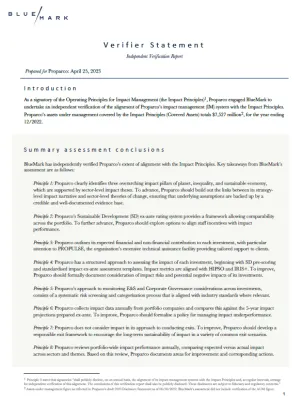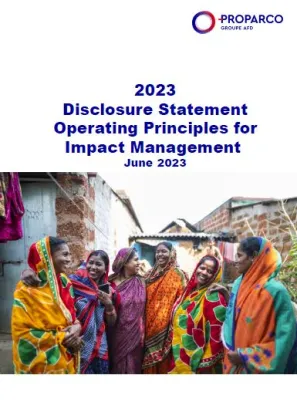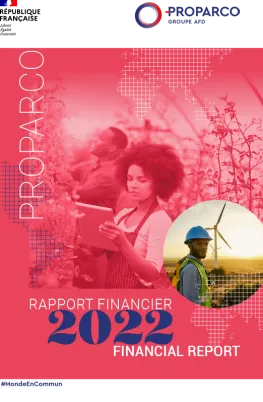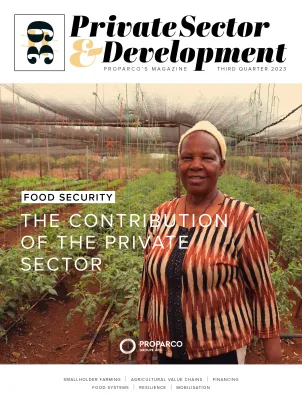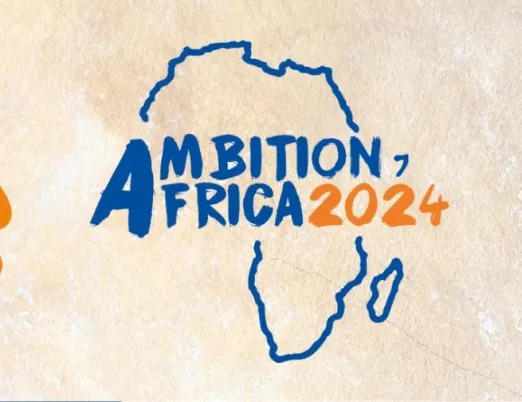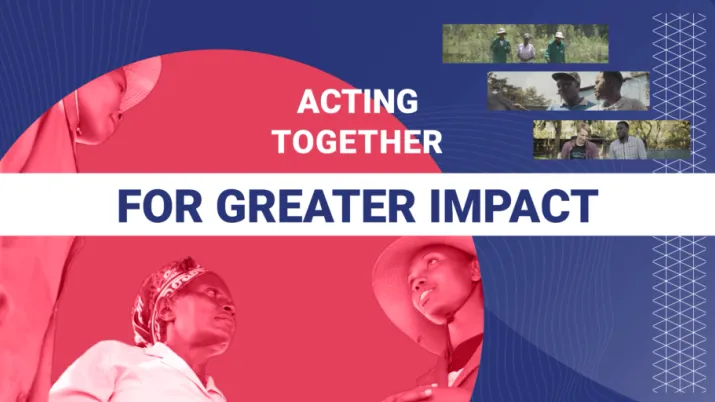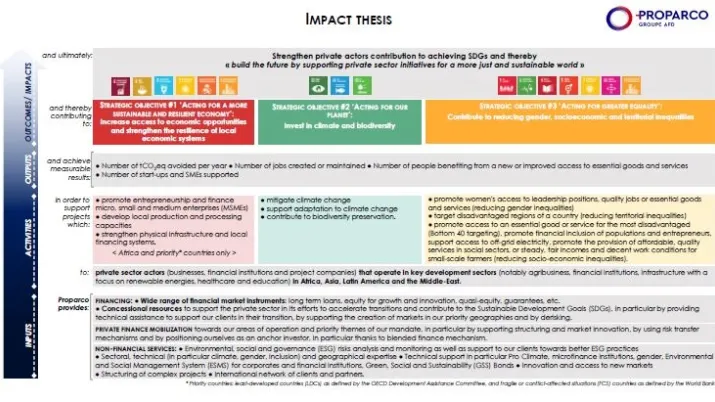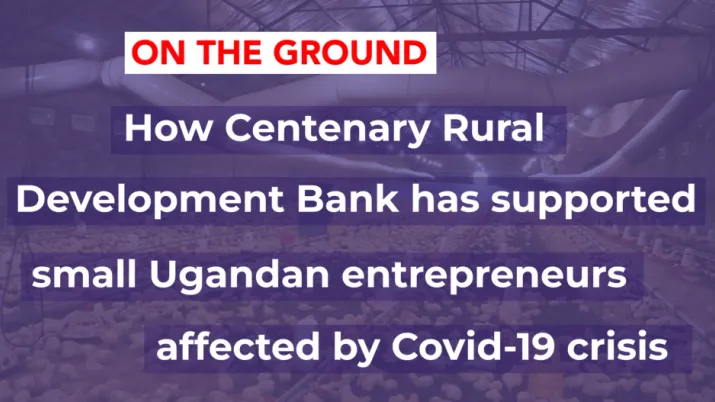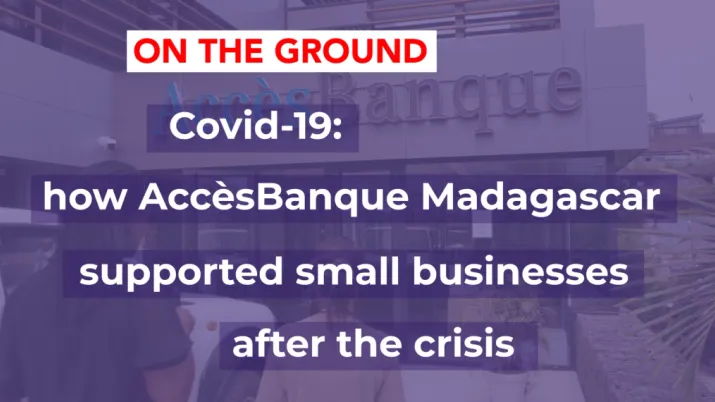Search results
REPLAY - Intervention de Proparco lors du ARE Energy Access Investment Forum (EAIF) 2023
Watch the intervention of Medjo Yolande Wafo, Investment Officer, Proparco, during the ARE Energy Access Investment Forum (EAIF) of March 2023.
Publication
Published on
2023 Verifier Statement
As a signatory to the Operating Principles for Impact Management, Proparco is required to publish an annual Disclosure Statement describing how its impact management system is aligned with each of the...
Publication
Published on
Are Scale-up: facilitating private sector investments in renewable energies in Africa
The AFD Group, with the support of the European Union, has set up the African Renewable Energy Scale-Up facility (ARE Scale-Up facility) to boost private sector investment in on–grid and off-grid rene...
Editorial page
2023 Disclosure Statement Operating Principles for Impact Management
The Impact Principles set inspiring goals to reach for all responsible finance investors eager to promote business in common. They provide standards and guidelines for an analytical and systemic appro...
Publication
Published on
Proparco financial report 2022
Download Proparco's 2022 Financial Report in English and French (bilingual version).
Publication
Published on
Presentation of the Private Sector & Development magazine #39
To mark World Food Day on October 16, the 39th issue of Proparco’s Private Sector & Development magazine is devoted to food security. Morgane Rocher, Investment Officer at Proparco, presents the ma...
Publication
Published on
Private Sector & Development #39 - Food security: the contribution of the private sector
To mark World Food Day on 16th October 2023, the 39th issue was devoted to food security. It provides a collective reflection on the subject and highlights the need to get the private sector more invo...
Publication
Published on
REPLAY - Intervention of Proparco during Invest In Côte d'Ivoire 2023
Watch the intervention of Moustapha Ibrahim Malloum, Deputy Head West Africa Regional Office of Proparco, during Invest In Côte d'Ivoire of October 5 2023.
Publication
Published on
REPLAY - Intervention of Proparco during BPI France's BIG 2023 (Asia Campus)
Watch the intervention of Amélie PIERRE MILON, Principal in the Manufacturing, Agro-industries and Services Department at Proparco, at BPI France's BIG 2023 session (Asia Campus) on "Expanding Circula...
Publication
Published on
Private Sector & Development #40 - Sustainable cities: how private sector players are gearing up
By 2050, almost 70% of the population of developing countries will be living in cities. Deploying sustainable urban infrastructure and services is a massive challenge.
Publication
Published on
Presentation of the Private Sector & Development #40 magazine
Christel Bourbon-Séclet, Director City Finance Programme at C40 Cities Climate Leadership Group, and Frédéric Audras, Head of the Urban Development, Planning and Housing Division at the Agence françai...
Publication
Published on
REPLAY - Françoise Lombard's speech at the opening day of the Paris INFRAWEEK 2023
Watch the intervention of Françoise Lombard, Chief Executive Officer of Proparco, on the opening day of Paris INFRAWEEK 2023, at the plenary session " Unlocking Private-sector Financing in Emerging Co...
Publication
Published on
REPLAY - Intervention of Proparco at Ambition Africa 2023
Watch the intervention of Myriam Brigui, Director of Internation Network Department of Proparco, during the fifth edition of Ambition Africa, on the panel: "Financing SMEs in Africa: what new solution...
Publication
Published on
REPLAY - Intervention of Proparco at Annual General Assembly of the Global Donor Platform for Rural Developmen...
Watch the intervention of Fariza Chalal, Investment Officer Manufacturing, Agribusiness and Services à Proparco, during Annual General Assembly of the Global Donor Platform for Rural Development, on 2...
Publication
Published on
REPLAY - Intervention of Proparco at the Global Inclusive Finance Summit
Watch the intervention of Diane Jegam, Proparco Regional Director for South Asia, during the Global Inclusive Finance Summit 2023 organised in New Delhi, on the panel: "Microfinance for Climate Adapta...
Publication
Published on
Acting together for greater impact: Proparco's 2023-2027 strategy
In a context of climate emergency and a growing number of diverse crises, it is essential to get all stakeholders involved in combating poverty and redressing inequalities.
Publication
Published on
Report in India: Sahyadri Farms, vines are a joint initiative
In the Indian state of Maharashtra, the Sahyadri Farms (a farmer collective owned company) – supported by Proparco – has managed to build a network of 24,000 smallholder farmers and become the country...
Publication
Published on
Proparco's Impact thesis
Proparco's impact thesis sets out, using a diagram, its logic of intervention in order to strengthen the contribution of private actors in achieving the Sustainable Development Goals (SDGs) and, in so...
Publication
Published on
Uganda: How Centenary Bank has supported small entrepreneurs affected by Covid-19
Centenary Rural Development Bank, the second largest financial institution in Uganda, supported its clients that have been affected by the Covid-19 crisis. The project is implemented by Proparco wi...
Publication
Published on
Covid-19: how AccèsBanque Madagascar supported small businesses after the crisis
AccèsBanque Madagascar, a commercial bank created in 2006 by AccessHolding and present throughout Madagascar, has helped its customers deal with the consequences of the Covid-19 pandemic. AccèsBanq...
Publication
Published on


